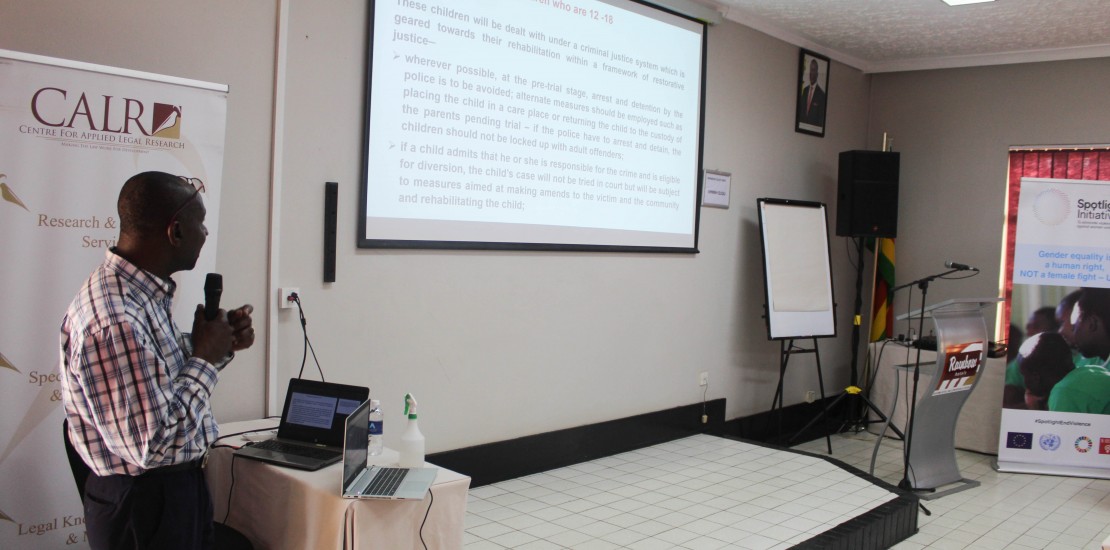- December 12, 2022
- Posted by: Clever K Mlambo
- Category: News

The Centre for Applied Legal Research (CALR) working in partnership with UNICEF Zimbabwe held a sensitisation and update meeting on the Child Justice Bill H.B.11, 2021 in Kadoma on 2 December 2022. The meeting was set to sensitise key stakeholders who will be involved in implementing the Child Justice Bill (CJB) once passed by Parliament.
The CJB intends to give effect to children’s rights and welfare in line with the Constitution, the United Convention on the Rights of the Child and the African Charter on the Rights and Welfare of the Child. The Bill also seeks to establish a separate juvenile justice system for children in conflict with the law, based on principles of restoration and rehabilitation of juvenile offenders.
Following the adoption of the Zimbabwe new constitution in 2013, Zimbabwe has made some strides in revamping the prison system, the prison service is now known as the Prisons and Correctional Services. In line with constitutional provisions and both regional and international standards, the CJB seeks to establish a restorative and rehabilitate justice system for children in conflict with the law.
Restorative Justice mechanisms in the proposed law include victim-offender mediation and family group conference, these mechanisms will be done to balance the child’s interests against the interests of the victims and community.
In efforts to have a specially designed justice delivery system for children, the CJB establishes Child Justice Courts, where court officials (magistrates, prosecutors and judges) are trained to manage the child justice courts. The child justice courts are set to outline the roles of court officials, parents, sentencing and imprisonment guidelines, etc.
Children’s interests are important as section 81(2) of the constitution stipulates that “ a child’s best interests are paramount in every matter concerning that child”. This law seeks to protect and safeguard children in contact with the law.
Criminal records have a lot of negative effects on offenders, including child offenders. Because the CJB is based on restorative justice and rehabilitating child offenders into society, courts will be compelled to expunge criminal records not less than 12 months and not more than 5 years from the date of imposition of the sentence. This will allow the child to seek job opportunities and other opportunities with a clean criminal record.
The police will be taught how to deal with children in conflict with the law, and methods on how to arrest and detain the children.
Present at the meeting were representatives from the Ministry of Justice Legal Parliamentary Affairs, the Ministry of Public Service, Labour and Social Welfare, The ZRP’s Victim Friendly Unit, the National Prosecuting Authority, and the Judicial Services Commission among others.
